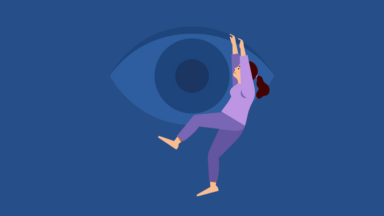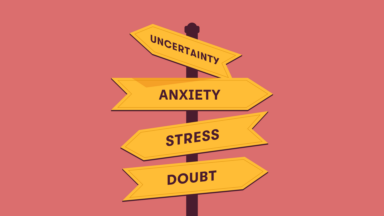
One of the most striking findings of the Great British Sleep Survey 2012 was that an incredible 42% of those who reported taking sleeping pills had also had sleep problems for over a decade. This finding adds to existing clinical evidence that sleeping pills are not an effective solution for long term sleep problems. It also suggests that sleeping pills are being taken by those who, according to the UK’s National Health Service guidelines, shouldn’t be – long-term poor sleepers.
Fundamentally, there are no shortcuts when it comes to improving poor sleep and it may be that you need to try a whole range of solutions before finding the one that works for you.
As far as the best way to get to sleep goes, Cognitive Behavioural Therapy (CBT) has repeatedly been found to be the most effective intervention for poor sleep, regardless of age, gender or the severity of the problem. Studies have also shown that, on the whole, patients with poor sleep prefer an approach based on the principles of Cognitive Behavioural Therapy compared with medication.
The most obvious explanation for this preference is that sleep is such a natural process that people feel they shouldn’t need to resort to pills or potions to address it. CBT represents just such a natural, long-term ‘sleep easy solution’.
A natural solution for poor sleep
Often, people looking for gentle sleep solutions prefer a cognitive-behavioural approach which, whilst requiring changes to your habits and lifestyle, does not include sleeping pills or other pharmacological aids.
CBT has been shown in numerous controlled trials to be more effective in addressing long-term insomnia than sleeping pills. Unfortunately, in the UK, sleep solutions such as CBT aren’t easily accessible due to a shortage of trained therapists and the high cost of face-to-face therapy.
The Sleepio programme however, is a clinically proven solution to this common and often untreated problem. Sleepio acts directly on the way you think and behave in relation to sleep, training you to use techniques that address the mental factors associated with insomnia, such as the ‘racing mind’, and to overcome the worry and other negative emotions that accompany the experience of being unable to sleep.
In addition, CBT helps people with poor sleep establish a ‘pro-sleep’ routine and achieve a strong connection between bed and successful sleep, meaning that falling asleep and staying asleep in bed becomes more automatic and natural.
Pharmacological sleeping solutions
The pharmacological approach to solving sleep problems includes more than just prescription sleeping pills. Herbal remedies and supplements such as melatonin and magnesium are also available, although they are not as popular a choice.
Despite the increase in prescriptions for sleeping pills and sales of over-the-counter sleep aids, research has consistently shown that long-term sleep problems are helped most effectively by CBT.
If you are in any doubt about a specific sleeping solution, we would urge you to consult your GP.

Here’s our latest

Does Cognitive Behavioural Therapy For Insomnia Really Work?
For many people, the struggle to get a good night’s sleep is all too familiar. Insomnia can affect every aspect…

Alzheimer’s and Sleep Changes
Alzheimer’s disease is a challenging journey for both patients and their families. In addition to memory and cognitive changes, Alzheimer’s…

Cancer and Sleep
Hearing the words “you have cancer” affects more than just your physical health. People living with cancer say that poor…


